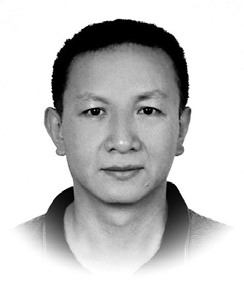
Winton Dong dht0620@126.com FINDING a vaccine is a collaborative effort, but who gets priority when vaccines are hitting the market is still a controversial issue all over the world. According to news reports, with both Pfizer-BioNTech and Moderna COVID-19 vaccines approved for emergency use, the wealthiest Western countries have obtained most of the initial doses. With a population of about 331 million, the United States has already secured the first 100 million doses of Pfizer-BioNTech vaccines and another 100 million doses from Moderna. Both vaccines require two doses per person. It is understandable that wealthier countries get vaccines first, but it is not a good practice for them to get doses much more than their actual needs. According to Oxfam, a charity organization, wealthier nations have bought enough doses to vaccinate their total populations three times. Canada tops the list with enough doses to vaccinate every citizen five times. Rich Western nations only represent 14 percent of the world’s population, but so far have bought more than 53 percent of the available vaccines. Even with enough vaccines, it seems that some privileged persons in Western countries, such as politicians, wealthy people, athletes, celebrities and other well-connected people, are taking the same approach to bribe doctors to bypass government mandated priorities and jump in the waiting line. A recent Los Angeles Times report showed that Hollywood household names and Silicon Valley executives, who are accustomed to get preferential treatment, are instructing their assistants to contact doctors frequently to find out how they can jump in the queue and be better treated by paying more money. Oxfam further estimated that due to the unbalanced and insufficient supply, only 10 percent of the populations in 70 poor countries worldwide would get vaccinated in 2021. If people in these nations cannot be inoculated, it is impossible for the whole world to win the battle against the ravaging pandemic. Two weeks ago, the Chinese Government unveiled a plan of nationwide vaccination of high-risk groups, which include employees in medicine, customs, public transportation, cross-border inspection, the cold-chain industry, sea food markets, other frontier workers and those who will work, study or travel to medium- and high-risk areas all over the world. Targeting such special groups as the top priority is only the first step for China to finally achieve its goal of mass inoculation. Chinese domestically produced COVID-19 vaccines already have an excellent safety record. Leading domestic developer Sinopharm said that its vaccine is 79.34 percent effective and has met the requirements set by both the World Health Organization and the National Medical Products Administration. As domestic vaccines have been proved to be generally safe and effective, Chinese people qualified for urgent inoculation have shown stronger and stronger willingness to take the shot. Considering China’s gigantic population base, the country itself is in great need of vaccines especially with the coming chilly winter and the sporadic rebounds in some parts of the country. However, China thinks that the race for developing and producing vaccines is a global effort for all humankind, not just for one country. Guided by such a principle, China has provided vaccines to Indonesia, Brazil, Mexico, the Philippines and many other developing countries. Compared with Western vaccines, Chinese vaccines are effective but much cheaper, thus making them affordable for developing nations. More importantly, it is unnecessary for Chinese vaccines to be stored in extremely low temperature, as is the case with Moderna and some other Western vaccines. Frankly speaking, no vaccine is 100 percent effective. Vaccination is not a panacea, but offers an extra protection for human beings. As for China, the country will soon face the test of the biggest travel rush of the year around the Spring Festival holiday. Governments at various levels should suggest family reunions be limited to a certain scale. Meanwhile, people should be advised to continuously wear masks, keep social distances and maintain good personal hygiene. (The author is the editor-in-chief of Shenzhen Daily with a Ph.D. from the Journalism and Communication School of Wuhan University.) | 
